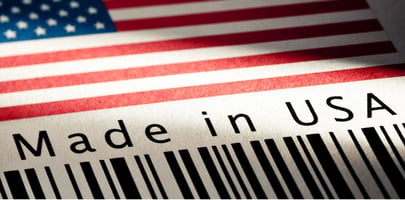The COVID-19 pandemic has disrupted many aspects of the global supply chain and it is likely that...
Being yourself is the best way to communicate with your suppliers
To communicate effectively with your suppliers, you need to make sure that two components are in place. The first, which we discussed last week, is understanding the roles of various people you will meet on your suppliers’ side and how they will influence your interactions. The other part, which we will talk about today, is how you present yourself: you need to be transparent and authentic in your interactions with your suppliers.
What transparency and authenticity mean
In short, being transparent means you are being honest -- you have nothing to hide. Being authentic means you are being yourself, not putting up a false front.
How would these look like in your usual interaction with your suppliers?
You know you are being transparent and authentic when you:
-
show your true personality: You don’t pretend to be someone else or to know more than you do.
-
are upfront with your intentions: You don’t pretend to do something for one reason when there is actually a hidden agenda behind your action.
-
don’t hide behind a title or a busy schedule: While different issues need to be taken up with employees of different roles, you know that everyone, regardless of title, has something to contribute.
How many of these do you check off? That will give you a good indication of where you stand.
How transparency and authenticity will help you
Why be genuine? Three main benefits result from being transparent and authentic in your dealings with your suppliers. Let’s look at them in detail.
1. Driving trust and loyalty in your supply chain
Call it human instinct, but others can feel your sincerity when they interact with you. Being authentic goes a long way in instilling trust in your suppliers. When you are honest and genuine, you project a distinct feeling that you are trustworthy. Your suppliers will develop loyalty towards you, and when you need their help in the future, they will go the extra mile to fulfill your needs or achieve your goals.
2. Resolving crises and tensions effectively
In times of crises, being transparent and authentic means you don’t sugarcoat the bad news -- you deal with them directly. Conversely, it also means that you don’t over-promise for the sake of looking good. If you say that an issue is acceptable, then it truly is. Over time, your suppliers will know that you mean what you say and that they don’t need to worry that you will go back on your words. As a result, there is no second-guessing, so any crisis can be solved quickly and effectively.
3. Fostering innovation
When you are transparent, everyone knows that they can speak their minds. Your suppliers don’t have to walk on eggshells around you, so they can freely share their views on things you may have overlooked.
At the same time, don’t be afraid of asking stupid questions. Your candidness will show your humility and can elicit insightful sharing from your suppliers. This can result in innovative ideas that can help improve designs and processes or even generate a new revenue stream.
Trust and loyalty drive better performance
The advantages we discussed above all point towards one thing: better performance.
The trust you instill through being honest and genuine will prevent second-guessing at every move -- it’s the best antidote for division. You and your suppliers will not need to be wary of each other’s hidden agendas. Instead, you can focus your energy and time on working together and resolving problems.
Your suppliers’ loyalty will act as the best motivator for their performance. Supply chain partners that are loyal to you will ensure that they do their best work for you. You’ll get what you need: on-time delivery, good quality, and even innovative ideas for improvement.
Ultimately, everybody wins when you strive towards being transparent and authentic.
-1.jpg?width=146&height=50&name=Kusu%20(1)-1.jpg)

.jpg?height=200&name=DSC_0983%20(1).jpg)

